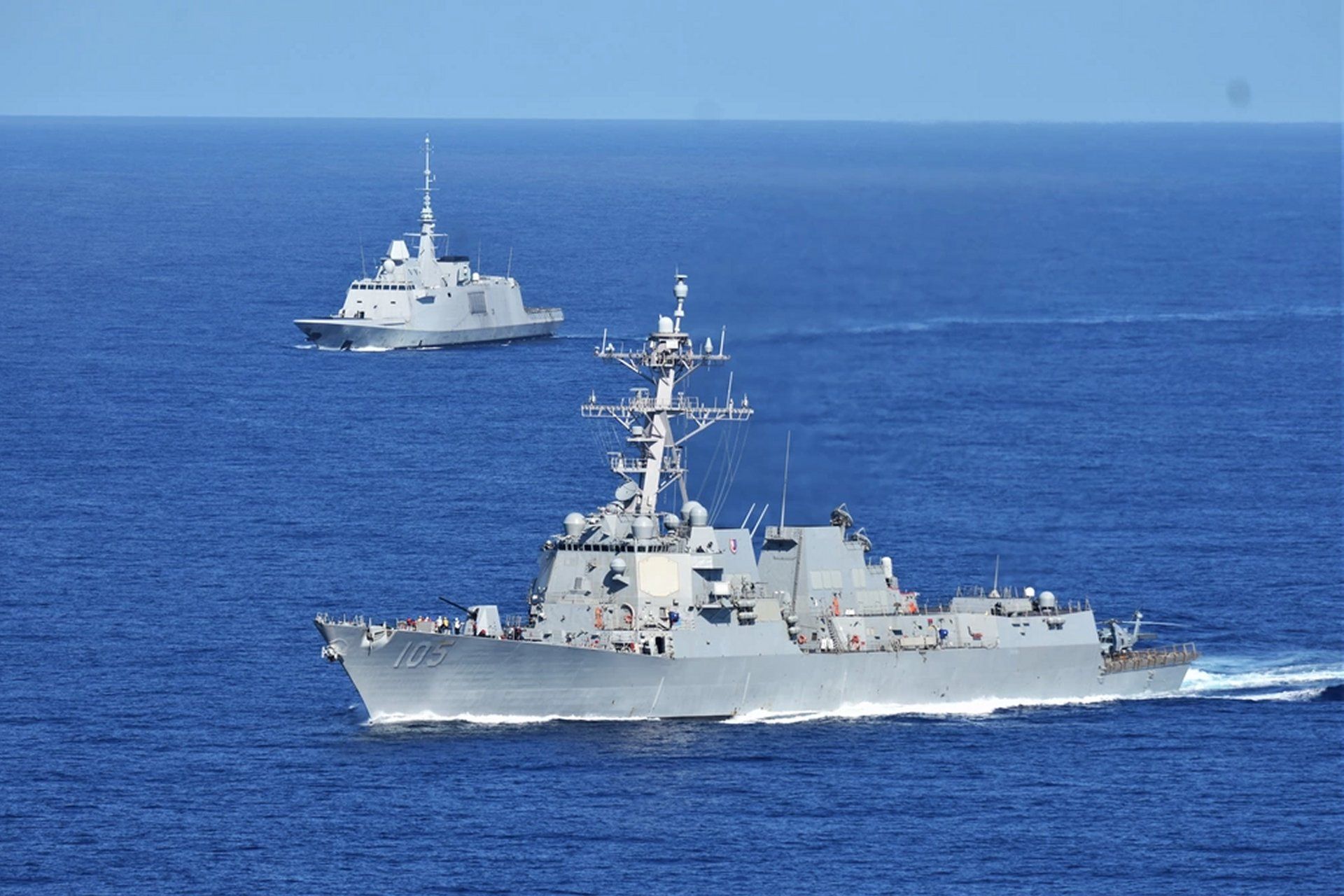Breaking News
US and French Navies conduct joint operations in Philippine Sea.
According to information published by the US DoD on August 13, 2024, the U.S. Navy and French Navy conducted bilateral operations in the Philippine Sea. The joint exercises involved the U.S. Navy's USS Dewey (DDG 105), an Arleigh Burke-class guided-missile destroyer, and the French Navy's FS Bretagne (D655), an Aquitaine-class frigate.
Follow Army Recognition on Google News at this link

The USS Dewey, an Arleigh Burke-class guided-missile destroyer, sails in formation with the French Navy's Aquitaine-class frigate FS Bretagne. (Picture source: Dvids)
France is unique among European nations as it is a resident power in the Indo-Pacific, with approximately 1.65 million French citizens living in overseas territories such as Réunion, New Caledonia, and French Polynesia.
These territories give France one of the largest Exclusive Economic Zones (EEZ) in the world, totaling around 9 million square kilometers in the Indo-Pacific. Consequently, ensuring the security of these regions is a matter of both national sovereignty and strategic necessity.
The French Navy has been active in maintaining a consistent presence in the Indo-Pacific, regularly deploying vessels, submarines, and aircraft.
This presence is designed to fulfill three primary objectives: protecting French sovereignty, contributing to regional stability, and supporting France's global strategic interests. This includes participating in multilateral exercises like RIMPAC and enhancing interoperability with key regional allies such as the United States, Australia, India, and Japan.
However, despite these ambitions, the French Navy faces significant challenges. The forces currently allocated to the Indo-Pacific are relatively small and stretched thin, a legacy of decades of underinvestment and shrinking force sizes.
While there are efforts underway to modernize and enhance these capabilities—such as the introduction of new patrol vessels and the potential deployment of the aircraft carrier Charles de Gaulle—these measures are often seen as insufficient to match the rising challenges posed by other regional powers, particularly China.


























